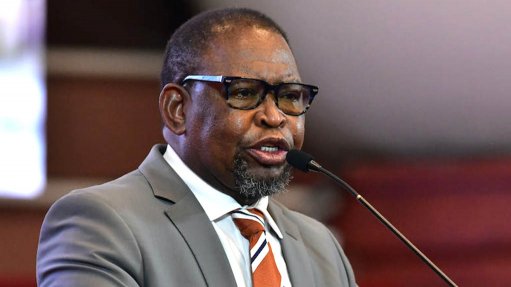Global survey seeks to understand how circular economy is perceived
The first global survey on the circular economy, which is still a relatively new paradigm which different stakeholders understand differently, will seek to understand how consumers, producers and product designers perceive the circular economy.
Titled ‘Imagine Circularity’, the survey’s findings will feed into policy-making processes, influence corporate decision-making and help to change consumption patterns globally.
Austrian nonprofit organisation Revolve Circular president Sören Bauer says the necessary transformation from a linear economy obsessed with an economic growth paradigm to a circular and inclusive society “will not happen in well-written reports, press releases or in Zoom meetings”, but rather through understanding and changing mindsets about the way people live and consume products.
“Our claim that the circular transformation will not be live-streamed means that no one will ever be able to capture in Zoom, Microsoft Teams meetings or YouTube the systemic change that needs to happen in terms of consumer behaviour and the way we produce and run the global economy. This change has to happen live – in our brains, corporate boardrooms and Parliaments,” he asserted.
It is for this reason that the survey was designed to introduce each participant to a range of basic concepts related to the circular economy and, in turn, enhance participants’ circular economy literacy.
As an opinion poll, the survey’s results will provide insights on the different understandings and perceptions on the topic across a range of stakeholders and countries.
The aim is to engage one-million participants from around the world in order to produce a representative sample of global views and understandings.
Netherlands-based University of Utrecht’s Copernicus Institute of Sustainable Development’s Walter Vermeulen explains that, as part of the university’s partnership with Revolve Circular, the university provides expertise from many years of sustainability and circular economy research to ensure the global survey is methodologically strong and captures circularity in a holistic manner.
“In addition to a global report, we hope to be able to produce a range of country, city and industry reports, as many various partners from different countries are already planning to join us in this global effort. We will also use the survey’s findings for producing scientific evidence on how different stakeholders in various world regions and industries understand and perceive the circular economy globally,” he explains.
The Copernicus Institute is the main partner of the global survey initiative which will, at first, be launched in English only.
Up until November 30, 2021, partners can join the survey initiative by translating it into their respective languages. The generic survey can also be extended and adapted into a culturally customised version for their respective countries.
African Circular Economy Network (ACEN) executive team member Jocelyne Landry Tsonang, meanwhile, said the organisation’s experience “shows that there are five main challenges and barriers to a more circular Africa”.
The first of these challenges is the lack of institutional capacity and proper understanding of the concept, as many policy-makers have simply not yet grasped the various benefits and the scope of circularity for the continent, she says.
“Related to that is the misconception that a circular economy is the same as waste management and recycling which are only the last resort: Circularity starts with designing ‘out waste,’ usually referred to as ‘circular design’.”
A further concern is that regulatory frameworks either do not exist or are often counterproductive.
“It will be a major challenge to establish ‘pro-circularity regulations’ in Cameroon, let alone on the continent as a whole,” says the Cameroon-based entrepreneur.
She adds that there is also a need and an opportunity to embed circular economy education in curricula and practice it in schools and campuses which would enable the younger generation to work towards a circular Africa.
BOOK RELEASE
'Imagine Circularity' is only one of many efforts around the globe to educate citizens, policy-makers, corporate decision-makers and others on the opportunities, benefits and necessity of a different economic model.
In the US, Kyle Ritchie and Eric Corey Freed have co-authored the book Circular Economy for Dummies, which will be available from April 27.
“It is important to acknowledge what I consider a pretty simple truth: We cannot rely on individuals to make the ‘right’ purchasing practices and change their buying behaviour without a proper incentives in place.
“This isn’t to say humans are inherently bad and selfish; I’m simply saying that if we could solely rely on the individuals of this world to shape a brighter future, we wouldn’t still be using styrofoam to keep our $1 coffee hot, despite knowing how detrimental it is as a material,” explains Ritchie, who is also CannonDesign’s education sustainable design lead.
“From that platform of understanding then, we can accept that the structures of our society must change to incentivise individuals to make better decisions and support the circular management of products and materials.
“Only political and corporate leaders hold the potential to adjust the transition from linear to circular by providing incentives to the individual. By accepting this, we must then educate our political and corporate leaders on how to properly implement and roll out those incentives in a way that is not overly disruptive to the current structures in place,” he explains.
Comments
Press Office
Announcements
What's On
Subscribe to improve your user experience...
Option 1 (equivalent of R125 a month):
Receive a weekly copy of Creamer Media's Engineering News & Mining Weekly magazine
(print copy for those in South Africa and e-magazine for those outside of South Africa)
Receive daily email newsletters
Access to full search results
Access archive of magazine back copies
Access to Projects in Progress
Access to ONE Research Report of your choice in PDF format
Option 2 (equivalent of R375 a month):
All benefits from Option 1
PLUS
Access to Creamer Media's Research Channel Africa for ALL Research Reports, in PDF format, on various industrial and mining sectors
including Electricity; Water; Energy Transition; Hydrogen; Roads, Rail and Ports; Coal; Gold; Platinum; Battery Metals; etc.
Already a subscriber?
Forgotten your password?
Receive weekly copy of Creamer Media's Engineering News & Mining Weekly magazine (print copy for those in South Africa and e-magazine for those outside of South Africa)
➕
Recieve daily email newsletters
➕
Access to full search results
➕
Access archive of magazine back copies
➕
Access to Projects in Progress
➕
Access to ONE Research Report of your choice in PDF format
RESEARCH CHANNEL AFRICA
R4500 (equivalent of R375 a month)
SUBSCRIBEAll benefits from Option 1
➕
Access to Creamer Media's Research Channel Africa for ALL Research Reports on various industrial and mining sectors, in PDF format, including on:
Electricity
➕
Water
➕
Energy Transition
➕
Hydrogen
➕
Roads, Rail and Ports
➕
Coal
➕
Gold
➕
Platinum
➕
Battery Metals
➕
etc.
Receive all benefits from Option 1 or Option 2 delivered to numerous people at your company
➕
Multiple User names and Passwords for simultaneous log-ins
➕
Intranet integration access to all in your organisation


















